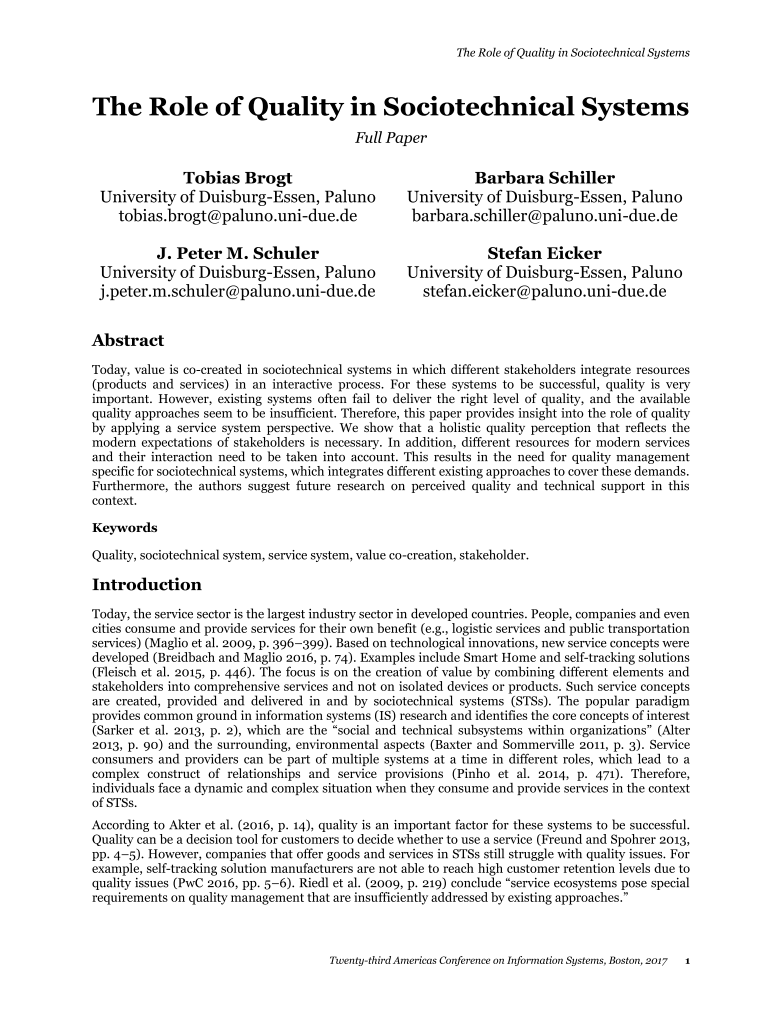Publications

With our publications we cover the most diverse research areas that arise in the field of man, task and technology. In addition to traditional Business Information Systems topics such as knowledge management and business process management, you will also find articles on current topics such as blended learning, cloud computing or smart grids. Use this overview to get an impression of the range and possibilities of research in Business Information Systems at the University of Duisburg-Essen.

Type of Publication: Article in Collected Edition
The Role of Quality in Sociotechnical Systems
- Author(s):
- Brogt, Tobias; Schiller, Barbara; Schuler, J. Peter M.; Eicker, Stefan
- Editor:
- Ais
- Title of Anthology:
- Proceedings of AMCIS 2017 - Twenty-third Americas Conference on Information Systems
- Location(s):
- Boston
- Publication Date:
- 2017
- Keywords:
- Quality, sociotechnical system, service system, value co-creation, stakeholder
- Link to complete version:
- http://aisel.aisnet.org/amcis2017/SocialTechincal/Presentations/4/
- Citation:
- Download BibTeX
Abstract
Today, value is co-created in sociotechnical systems in which different stakeholders integrate resources (products and services) in an interactive process. For these systems to be successful, quality is very important. However, existing systems often fail to deliver the right level of quality, and the available quality approaches seem to be insufficient. Therefore, this paper provides insight into the role of quality by applying a service system perspective. We show that a holistic quality perception that reflects the modern expectations of stakeholders is necessary. In addition, different resources for modern services and their interaction need to be taken into account. This results in the need for quality management specific for sociotechnical systems, which integrates different existing approaches to cover these demands. Furthermore, the authors suggest future research on perceived quality and technical support in this context.
